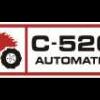Sign in to follow this
Followers
0

Prepwork and Primer
By
kj4kicks, in Restorations, Modifications, & Customizations

By
kj4kicks, in Restorations, Modifications, & Customizations